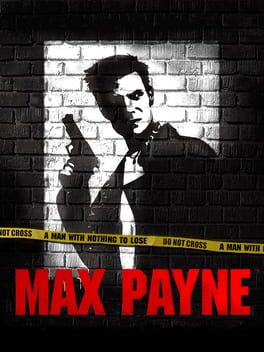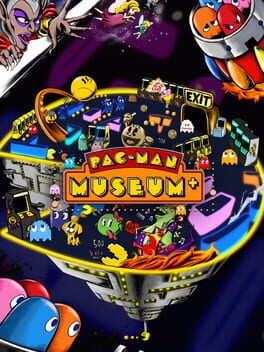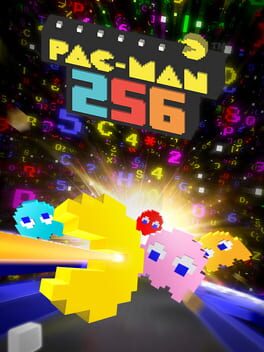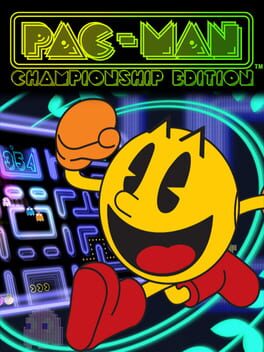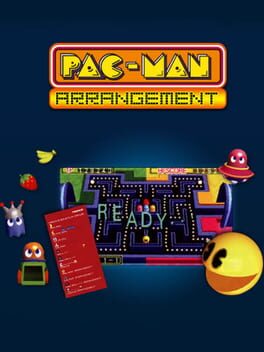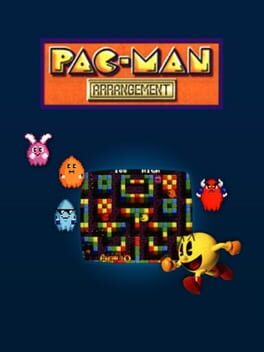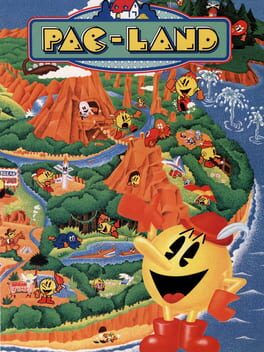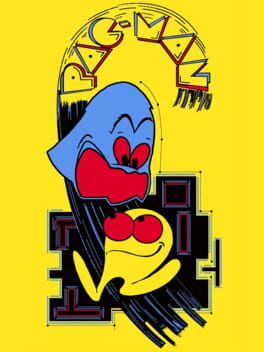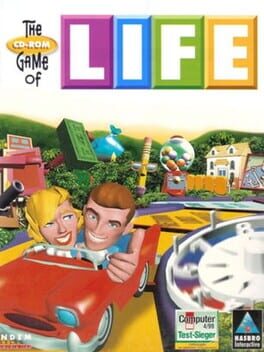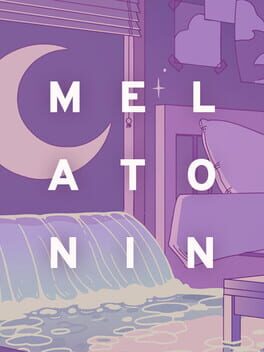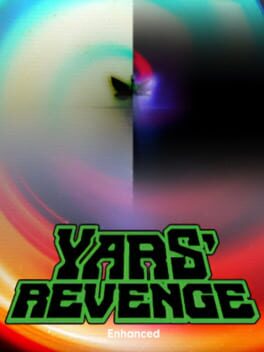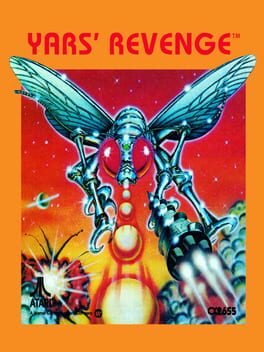Speady
BACKER
2001
"The past is like pieces of a broken mirror. You try to pick them up, but you only end up cutting yourself."
I'm not one for neo-noir stuff, but I'm quite surprised by how much I enjoyed Max Payne! The only experience that I had with Sam Lake's writing prior was with Alan Wake and Control, and it's absolutely stellar to see how much of that uniqueness was present much earlier in gaming, finding a way to brilliantly meld together a drug trafficking conspiracy and a revenge for murder with Norse mythology. It's bizarre, themed like a graphic novel, and really unlike anything I've played from this era.
Gameplay is great as well, for the most part. The main feature of "bullet time" is a nice addition to the third-person action genre, but I only ever used it in sequences involving a ton of enemies at once. (I started this game on both PC and Xbox, and the former is a bit tougher to play without the controller's auto-aim features. Perhaps, the "bullet time" mechanic is more beneficial on that platform.) What also quite impressed me here was the interactivity of the world itself. I haven't played many PC games from the late-90s/early-2000s era, but I've noticed that this attention-to-detail is present in most that I've played, notably Half-Life. Not every asset and boundary is interactive or has physics to them, but you can press buttons and break glass and the like to your advantage.
Really, the only part of this game that I think could've used a bit more work is some of the level designs, especially towards the final sections when rooms begin to feel repetitive. The stiff platforming, although obviously not the main selling point of this game, is noticeable when required to walk on thin platforms or maneuver around lasers.
Max Payne really is great, and I can understand its following. An early example of the 3D action genre that manages to tell a unique tale with shooting that feels good and cutscenes that are fueled with adrenaline and campy detective dialogue.
I'm not one for neo-noir stuff, but I'm quite surprised by how much I enjoyed Max Payne! The only experience that I had with Sam Lake's writing prior was with Alan Wake and Control, and it's absolutely stellar to see how much of that uniqueness was present much earlier in gaming, finding a way to brilliantly meld together a drug trafficking conspiracy and a revenge for murder with Norse mythology. It's bizarre, themed like a graphic novel, and really unlike anything I've played from this era.
Gameplay is great as well, for the most part. The main feature of "bullet time" is a nice addition to the third-person action genre, but I only ever used it in sequences involving a ton of enemies at once. (I started this game on both PC and Xbox, and the former is a bit tougher to play without the controller's auto-aim features. Perhaps, the "bullet time" mechanic is more beneficial on that platform.) What also quite impressed me here was the interactivity of the world itself. I haven't played many PC games from the late-90s/early-2000s era, but I've noticed that this attention-to-detail is present in most that I've played, notably Half-Life. Not every asset and boundary is interactive or has physics to them, but you can press buttons and break glass and the like to your advantage.
Really, the only part of this game that I think could've used a bit more work is some of the level designs, especially towards the final sections when rooms begin to feel repetitive. The stiff platforming, although obviously not the main selling point of this game, is noticeable when required to walk on thin platforms or maneuver around lasers.
Max Payne really is great, and I can understand its following. An early example of the 3D action genre that manages to tell a unique tale with shooting that feels good and cutscenes that are fueled with adrenaline and campy detective dialogue.
"It is the will of the gods."
"Fuck the gods!"
Replaying this one was an odd experience. I first played this nearly 6 years ago, gave it much high praise, then slowly moved on to forget what exactly I loved about it. All I remember was that it was a great standalone story, until the unexpected announcement of a sequel had me itching to return.
To put it brief, Hellblade: Senua's Sacrifice holds up, for what it tries to do. I had played this before 2018's God of War and vividly remember enjoying this interpretation of Norse mythology even more... but it's a different interpretation. Hellblade simply nails its narrative; a brief hero's journey and love story, centered around a young warrior who suffers with severe psychosis. The 3D audio is, of course, incredible at immersing the player into Senua's mind while adding a bit more flair to the game's combat and puzzles. It's also often horrific, and with its hyper-realistic art direction and surreal designs (including actual live-action shots), the story ends up becoming fucking awesome and heartpounding. Some of the boss designs genuinely made me uncomfortable, which is a merit to the world crafted here. By the time the player rolls credits, this becomes one of those experiences where they will browse the internet for some video essays analyzing what just occurred. It's not a power fantasy, but a simple story about overcoming your flaws and dealing with loss.
And, most of all, the actor performances, both in voice and motion capture, are some of the best I've seen in the medium. Melina Juergens is absolutely insane, among the rest of the cast.
Where I think Hellblade falls a bit flat though is in its gameplay. As stated, the 3D audio cues of Senua's voices add a neat addition to combat and puzzles, often aiding the player with cryptic hints or warnings. However, the game focuses just a bit too much more on puzzles than combat, and the puzzles that are there mostly consist of the same loop of lining up in-world objects to create runes or pathways. Even the combat, while decent to control, lacks the depth you typically find in action games of this nature, focusing purely on parrying, evading, and attacking. Sequences later on also swarm you with enemies, which can encumber your strategies in combat. As the narrative builds, these moments of gameplay ultimately slow down the process.
Do I recommend Hellblade: Senua's Sacrifice to anyone? With its short length and good accessibility, absolutely. Just be aware that this experience shines more in its cinematic narrative and immersion than its gameplay. Maybe drop the difficulty down, if you don't wish to be challenged by its shortcomings.
"Fuck the gods!"
Replaying this one was an odd experience. I first played this nearly 6 years ago, gave it much high praise, then slowly moved on to forget what exactly I loved about it. All I remember was that it was a great standalone story, until the unexpected announcement of a sequel had me itching to return.
To put it brief, Hellblade: Senua's Sacrifice holds up, for what it tries to do. I had played this before 2018's God of War and vividly remember enjoying this interpretation of Norse mythology even more... but it's a different interpretation. Hellblade simply nails its narrative; a brief hero's journey and love story, centered around a young warrior who suffers with severe psychosis. The 3D audio is, of course, incredible at immersing the player into Senua's mind while adding a bit more flair to the game's combat and puzzles. It's also often horrific, and with its hyper-realistic art direction and surreal designs (including actual live-action shots), the story ends up becoming fucking awesome and heartpounding. Some of the boss designs genuinely made me uncomfortable, which is a merit to the world crafted here. By the time the player rolls credits, this becomes one of those experiences where they will browse the internet for some video essays analyzing what just occurred. It's not a power fantasy, but a simple story about overcoming your flaws and dealing with loss.
And, most of all, the actor performances, both in voice and motion capture, are some of the best I've seen in the medium. Melina Juergens is absolutely insane, among the rest of the cast.
Where I think Hellblade falls a bit flat though is in its gameplay. As stated, the 3D audio cues of Senua's voices add a neat addition to combat and puzzles, often aiding the player with cryptic hints or warnings. However, the game focuses just a bit too much more on puzzles than combat, and the puzzles that are there mostly consist of the same loop of lining up in-world objects to create runes or pathways. Even the combat, while decent to control, lacks the depth you typically find in action games of this nature, focusing purely on parrying, evading, and attacking. Sequences later on also swarm you with enemies, which can encumber your strategies in combat. As the narrative builds, these moments of gameplay ultimately slow down the process.
Do I recommend Hellblade: Senua's Sacrifice to anyone? With its short length and good accessibility, absolutely. Just be aware that this experience shines more in its cinematic narrative and immersion than its gameplay. Maybe drop the difficulty down, if you don't wish to be challenged by its shortcomings.
2024
"Good thing I didn't bet against you!"
There are video games that I consider to be the greatest of all time. Games like Tetris that brilliantly execute a falling puzzle arcade experience simply with 4-block configurations. It is the job of the game designer to craft mechanics and systems as flawlessly as possible, often attempting to evolve upon a formula that came before it.
The standard 52-card deck is no stranger to this; its centuries-old design still being used to this day, with most notably games like Solitaire and Poker, among others. Balatro manages to build upon the latter, in a way that I genuinely was not expecting.
I went into Balatro knowing only what I've heard, not what I've seen. I hear it's like Poker, one of my all-time classics that I'm familiar with, and I'm on board. I hear it's a roguelike and deck-builder, I hesitate because I don't see myself a big fan of those two genres. Now, I can gush all day about the pixel-art/CRT-filtered presentation (as I always do), but that's not even this game's big strength. Games of this type utilizing an RNG system can have a tough time finding difficulty balance for the player, but I think Balatro simply using the standard deck of 52 cards genuinely helps a lot in adapting to the randomness of the boss blinds and shop spawns. You begin with the same cards every time, to which you are then allowed to adjust to your liking, based on the tarots and Joker cards you find in your run, most of which that can either lead to the fired-up chips of a massive win or a simple fumble by a boss blind's "attacks". Finishing your first run will depend on both the RNG and your own strategy of aiming for the Poker hands that will reach you to the blind, and each failure will lead you closer to victory with more cards unlocking as you go.
To its design though, I personally think the only thing a bit lacking with Balatro is the simplicity of its nature. I wasn't going into this expecting some wild meta-narrative like Inscryption or anything, but I do kind of wish there was a bit more here. There are tons of cards to unlock and challenges to check out, but in the end, it's just the single experience with multiple handicaps to try out. Perhaps that adds to its brilliance though; I can easily see a game like this show up in an arcade or even (god forbid) a gambling casino.
Balatro, a modern evolution of Poker, deserves its place among classics like Tetris and Solitaire. It may not be addicting to everybody, especially those unfamiliar with standard Poker hands, but its execution of design absolutely can't be understated.
I write this review, as I've been currently struggling to be hooked by most video games I've played so far this year. (Seriously, check out my Backloggd journal, if you don't believe me.) Clearly, this game did its job for me. I even refused to even look at my playtime clock until I finished my first run, and by that time, I ended up around the 13-hour mark... which is at least twice as long as my experience felt; averaging 26 minutes per day for the single month that I played this. (I only really have time to play these games on my lunch breaks at work, and I felt like I've been playing this for months.)
This is a video game that will, surely, stand the test of time, and it is definitely one that I am willing to buy for all of my devices, just to have it with me whenever and wherever. It's a powerful drug, and in a shocking surprise, I am now the dealer.
Play Balatro.
There are video games that I consider to be the greatest of all time. Games like Tetris that brilliantly execute a falling puzzle arcade experience simply with 4-block configurations. It is the job of the game designer to craft mechanics and systems as flawlessly as possible, often attempting to evolve upon a formula that came before it.
The standard 52-card deck is no stranger to this; its centuries-old design still being used to this day, with most notably games like Solitaire and Poker, among others. Balatro manages to build upon the latter, in a way that I genuinely was not expecting.
I went into Balatro knowing only what I've heard, not what I've seen. I hear it's like Poker, one of my all-time classics that I'm familiar with, and I'm on board. I hear it's a roguelike and deck-builder, I hesitate because I don't see myself a big fan of those two genres. Now, I can gush all day about the pixel-art/CRT-filtered presentation (as I always do), but that's not even this game's big strength. Games of this type utilizing an RNG system can have a tough time finding difficulty balance for the player, but I think Balatro simply using the standard deck of 52 cards genuinely helps a lot in adapting to the randomness of the boss blinds and shop spawns. You begin with the same cards every time, to which you are then allowed to adjust to your liking, based on the tarots and Joker cards you find in your run, most of which that can either lead to the fired-up chips of a massive win or a simple fumble by a boss blind's "attacks". Finishing your first run will depend on both the RNG and your own strategy of aiming for the Poker hands that will reach you to the blind, and each failure will lead you closer to victory with more cards unlocking as you go.
To its design though, I personally think the only thing a bit lacking with Balatro is the simplicity of its nature. I wasn't going into this expecting some wild meta-narrative like Inscryption or anything, but I do kind of wish there was a bit more here. There are tons of cards to unlock and challenges to check out, but in the end, it's just the single experience with multiple handicaps to try out. Perhaps that adds to its brilliance though; I can easily see a game like this show up in an arcade or even (god forbid) a gambling casino.
Balatro, a modern evolution of Poker, deserves its place among classics like Tetris and Solitaire. It may not be addicting to everybody, especially those unfamiliar with standard Poker hands, but its execution of design absolutely can't be understated.
I write this review, as I've been currently struggling to be hooked by most video games I've played so far this year. (Seriously, check out my Backloggd journal, if you don't believe me.) Clearly, this game did its job for me. I even refused to even look at my playtime clock until I finished my first run, and by that time, I ended up around the 13-hour mark... which is at least twice as long as my experience felt; averaging 26 minutes per day for the single month that I played this. (I only really have time to play these games on my lunch breaks at work, and I felt like I've been playing this for months.)
This is a video game that will, surely, stand the test of time, and it is definitely one that I am willing to buy for all of my devices, just to have it with me whenever and wherever. It's a powerful drug, and in a shocking surprise, I am now the dealer.
Play Balatro.
"It's not death. It's a homecoming."
In storytelling, the second act of a trilogy often brings high expectations. They are intended to build upon what's been introduced prior, leading to a climax that sets the main plot towards its finale. But with 2020's Final Fantasy VII Remake setting off an unexpected chain of events by Tetsuya Nomura, one that sees a convergence between the familiar and the unknown of a timeline branched from the fated, it brings much ambition and risk for the remainder of the project. (Yes I know Nomura didn't fully direct this one, but his elements introduced in the previous entry do follow-up here.)
Many were going into Final Fantasy VII Rebirth expecting an "Empire Strikes Back", grandiose and beyond evolving its predecessor, and I can surely see many leaving with that impression as well. But what I see here is more of "The Last Jedi", a second act so important that it can leave a massive impact on what's to come, and yet may leave tons of the audience conflicted. Needless to say, this is a headshaking work of art on a scale that we rarely see in the AAA space; a next step through one of the greatest remakes ever presented to us in the history of video games.
To start off with the good and often great: scale and scope. This is what I'd imagine a Xenoblade game would look like on actual current-generation hardware, sharing familiar designs in both its length and its transition to open-world segments, from the relationships you can build with party members, down to collecting materials that randomly spawn within these maps. And while I still personally enjoyed the linear nature of Remake's world, I still found the jump in parallel to the original's second act is incredibly impressive. Sections and locations recalled from that 1997 PS1 game look absolutely stunning in Rebirth, while also being filled with an abundance of content for the player to discover. It all overwhelmed me at first for sure, shortly before deciding to just mainline through the story about halfway through, but I can't help but be in awe at everything this team managed to throw in here within just 4 years of development. And of course, to no surprise after the previous entry, the overall audio-visual production here is simply phenomenal. One such section that really stood out to me was the Junon parade, which presented itself as a news broadcast throughout the whole QTE game, really immersing itself with incredible cinematic flair. (We'll talk more about the mini-games later, though.)
Another thing that I was actually really surprised by was how combat evolved as well. The lack of fluidity that I wanted out of Remake is definitely here now, and with full force, granting much more customization with how your party is controlled in combat. I also appreciate the game's encouragement to play as every single character, whether through forced story sections or use of synergy abilities. I had a much more enjoyable combat experience, this time around.
Now, for what I believe this game isn't too good at: pacing and narrative. Clearly, with the open nature and grand scope of the second act, I expected to mainline Rebirth in a much lengthier time than Remake, and I'm glad the content is there. However, much like how I felt with something like God of War Ragnarök, there's just too much unnecessary fluff here, which can break the pacing even more-so than certain sections of the previous game did. The thing about the original Final Fantasy VII is that I recall way more of the locations than I do of the story beats, so with Rebirth, whether it be same or different plot points, most of it felt more like the typical filler you'd find in anime that's meant to attach you to the characters as they develop. Hell, in a few months time, I'll probably remember more moments from Remake than I do from Rebirth, just because of the pure lack of importance these elements felt prior to the culmination of everything. Certain moments further establish pieces of convoluted lore than the original game ever did sure, but those are few and far between. I want to know more about this side-story with Zack, but we only ever see that progress after every 6-8 hours of the main story. There's just a lot here that could've been gutted, or at the very least been optional. It's such a damn shame too, because these characters are entertainingly-written, specifically the Turks, and there certainly are moments in the story that had me leaning forward in my seat, but the flow of it can often be fluctuating.
And speaking of pacing, part of that should be blamed on the inclusion of mini-games and side content. I can tolerate the open-world markers and tasks that Chadley assigns to you when exploring, as they allow you to unlock more challenges and materia. What really irked me were the mini-games though, some of which felt necessary to throw in during even the most action-packed chapters of the game. Yes, I know the original Final Fantasy VII was filled with mini-games, especially at the Gold Saucer (which, mind you, is executed beautifully in Rebirth), but like... why am I throwing boxes when navigating through a facility? Who thought it was a good idea to have a dolphin racing segment to get an elevator moving? It's just a little too much at times, and it's part of why I think the mainline quest can drag on for as long as it does.
Shoutout to Queen's Blood, though. What a game.
I don't think Final Fantasy VII Rebirth is necessarily downgraded by all my critiques of it, but I personally still found Remake to be a more enjoyable experience than this. But then again, I find myself to be somewhat sensitive to video games that are longer than they need to be, so I'm sure in the minority here. To its credit though, keeping the comparison I previously stated, I enjoyed my 40 hours of time with Final Fantasy VII Rebirth more than I enjoyed by 50+ hours of time with Xenoblade Chronicles, which gives it even more merit to the overall production. In true Tetsuya Nomura fashion though, it's an fun, dark, heartfelt adventure that may leave the audience either crying from character moments, cheering when plot theories begin to reveal their intentions, or confused by the bait of its bizarre director. And as I said, it's just a one-in-a-lifetime event to get to experience a project of this caliber unfolding; a massive retelling of arguably one of the most important stories ever crafted in video games. (God only knows the chaos that Kingdom Hearts IV will bring after this.)
Let us embrace whatever it brings.
In storytelling, the second act of a trilogy often brings high expectations. They are intended to build upon what's been introduced prior, leading to a climax that sets the main plot towards its finale. But with 2020's Final Fantasy VII Remake setting off an unexpected chain of events by Tetsuya Nomura, one that sees a convergence between the familiar and the unknown of a timeline branched from the fated, it brings much ambition and risk for the remainder of the project. (Yes I know Nomura didn't fully direct this one, but his elements introduced in the previous entry do follow-up here.)
Many were going into Final Fantasy VII Rebirth expecting an "Empire Strikes Back", grandiose and beyond evolving its predecessor, and I can surely see many leaving with that impression as well. But what I see here is more of "The Last Jedi", a second act so important that it can leave a massive impact on what's to come, and yet may leave tons of the audience conflicted. Needless to say, this is a headshaking work of art on a scale that we rarely see in the AAA space; a next step through one of the greatest remakes ever presented to us in the history of video games.
To start off with the good and often great: scale and scope. This is what I'd imagine a Xenoblade game would look like on actual current-generation hardware, sharing familiar designs in both its length and its transition to open-world segments, from the relationships you can build with party members, down to collecting materials that randomly spawn within these maps. And while I still personally enjoyed the linear nature of Remake's world, I still found the jump in parallel to the original's second act is incredibly impressive. Sections and locations recalled from that 1997 PS1 game look absolutely stunning in Rebirth, while also being filled with an abundance of content for the player to discover. It all overwhelmed me at first for sure, shortly before deciding to just mainline through the story about halfway through, but I can't help but be in awe at everything this team managed to throw in here within just 4 years of development. And of course, to no surprise after the previous entry, the overall audio-visual production here is simply phenomenal. One such section that really stood out to me was the Junon parade, which presented itself as a news broadcast throughout the whole QTE game, really immersing itself with incredible cinematic flair. (We'll talk more about the mini-games later, though.)
Another thing that I was actually really surprised by was how combat evolved as well. The lack of fluidity that I wanted out of Remake is definitely here now, and with full force, granting much more customization with how your party is controlled in combat. I also appreciate the game's encouragement to play as every single character, whether through forced story sections or use of synergy abilities. I had a much more enjoyable combat experience, this time around.
Now, for what I believe this game isn't too good at: pacing and narrative. Clearly, with the open nature and grand scope of the second act, I expected to mainline Rebirth in a much lengthier time than Remake, and I'm glad the content is there. However, much like how I felt with something like God of War Ragnarök, there's just too much unnecessary fluff here, which can break the pacing even more-so than certain sections of the previous game did. The thing about the original Final Fantasy VII is that I recall way more of the locations than I do of the story beats, so with Rebirth, whether it be same or different plot points, most of it felt more like the typical filler you'd find in anime that's meant to attach you to the characters as they develop. Hell, in a few months time, I'll probably remember more moments from Remake than I do from Rebirth, just because of the pure lack of importance these elements felt prior to the culmination of everything. Certain moments further establish pieces of convoluted lore than the original game ever did sure, but those are few and far between. I want to know more about this side-story with Zack, but we only ever see that progress after every 6-8 hours of the main story. There's just a lot here that could've been gutted, or at the very least been optional. It's such a damn shame too, because these characters are entertainingly-written, specifically the Turks, and there certainly are moments in the story that had me leaning forward in my seat, but the flow of it can often be fluctuating.
And speaking of pacing, part of that should be blamed on the inclusion of mini-games and side content. I can tolerate the open-world markers and tasks that Chadley assigns to you when exploring, as they allow you to unlock more challenges and materia. What really irked me were the mini-games though, some of which felt necessary to throw in during even the most action-packed chapters of the game. Yes, I know the original Final Fantasy VII was filled with mini-games, especially at the Gold Saucer (which, mind you, is executed beautifully in Rebirth), but like... why am I throwing boxes when navigating through a facility? Who thought it was a good idea to have a dolphin racing segment to get an elevator moving? It's just a little too much at times, and it's part of why I think the mainline quest can drag on for as long as it does.
Shoutout to Queen's Blood, though. What a game.
I don't think Final Fantasy VII Rebirth is necessarily downgraded by all my critiques of it, but I personally still found Remake to be a more enjoyable experience than this. But then again, I find myself to be somewhat sensitive to video games that are longer than they need to be, so I'm sure in the minority here. To its credit though, keeping the comparison I previously stated, I enjoyed my 40 hours of time with Final Fantasy VII Rebirth more than I enjoyed by 50+ hours of time with Xenoblade Chronicles, which gives it even more merit to the overall production. In true Tetsuya Nomura fashion though, it's an fun, dark, heartfelt adventure that may leave the audience either crying from character moments, cheering when plot theories begin to reveal their intentions, or confused by the bait of its bizarre director. And as I said, it's just a one-in-a-lifetime event to get to experience a project of this caliber unfolding; a massive retelling of arguably one of the most important stories ever crafted in video games. (God only knows the chaos that Kingdom Hearts IV will bring after this.)
Let us embrace whatever it brings.
2022
I'm not the biggest Pac-Man fan, so I kinda hoped this collection would make me a bit more acquainted with the franchise.
It's a fine celebration compilation, although a bit underwhelming, too. The selection of games is pretty good, with my favorites especially being Arrangement and Championship Edition, but it's somewhat of a shame that they didn't lean more into the archived history of the franchise, especially with Digital Eclipse blowing expectations out of the water nowadays for these kinds of things. And I wish the arcade customization and gachapon systems were more in-depth, because aside from the individual missions and focus on earning coins from playing arcade titles, your coins don't necessarily go too far.
Unless you're a diehard fan of the historical character, you're probably better off finding one of those beefier Namco collections instead, because I only really found about half of these games to be entertaining.
It's a fine celebration compilation, although a bit underwhelming, too. The selection of games is pretty good, with my favorites especially being Arrangement and Championship Edition, but it's somewhat of a shame that they didn't lean more into the archived history of the franchise, especially with Digital Eclipse blowing expectations out of the water nowadays for these kinds of things. And I wish the arcade customization and gachapon systems were more in-depth, because aside from the individual missions and focus on earning coins from playing arcade titles, your coins don't necessarily go too far.
Unless you're a diehard fan of the historical character, you're probably better off finding one of those beefier Namco collections instead, because I only really found about half of these games to be entertaining.
2015
2005
This remake of the original Pac-Man Arrangement is equivalent to Pokemon Brilliant Diamond & Shining Pearl. It's the same game... but they ruined the art direction.
1996
1984
1980
1998
Genuinely, this is probably the most charming board game adaptation I've ever played, even if it's still just generic The Game Of Life. I personally adore the cheesy animations and music, as they absolutely scream "late-1990s, early-2000s PC game" to me. All the jokes are quite silly, although they can understandably get repetitive, over the course of lots of playthroughs.
Play a game or two with your buddies. I think it's a good time.
Play a game or two with your buddies. I think it's a good time.
2022
When it comes to stylish music-based games, I believe Rhythm Heaven is the best in its class. Not just because of its charming 2D animation work and art direction, but because of its uniqueness in sound design and its simplicity in gameplay. Sound cues play a brilliant role in the franchise, mostly blending so well with the track that it's easy to remember them. Rhythm Heaven is one of those rare games that, if you learn every cue, it's easy to play with your ears alone.
Melatonin fails at this, unfortunately.
Don't get me wrong, as an obvious inspiration of the Rhythm Heaven series, I personally think this game nails the art direction that made its source so notable. The lo-fi music may not be desired by some, but I thought it worked well with the overall tone.
As mentioned though, Melatonin falls flat in its sound design, specifically with cues. It can be frustrating to play this at times, because most of these noises are either indistinguishable from each other, or they are so faint that they almost don't seem there at all. Having this game rely more solely on visual cues is fine, but again it can throw the player off with split-second reactions.
This is a fine indie-developed music games especially for those who love lo-fi tracks. However, if you're looking for a match to Rhythm Heaven, and one that runs you a handful of hours, you'll likely want to turn elsewhere.
Melatonin fails at this, unfortunately.
Don't get me wrong, as an obvious inspiration of the Rhythm Heaven series, I personally think this game nails the art direction that made its source so notable. The lo-fi music may not be desired by some, but I thought it worked well with the overall tone.
As mentioned though, Melatonin falls flat in its sound design, specifically with cues. It can be frustrating to play this at times, because most of these noises are either indistinguishable from each other, or they are so faint that they almost don't seem there at all. Having this game rely more solely on visual cues is fine, but again it can throw the player off with split-second reactions.
This is a fine indie-developed music games especially for those who love lo-fi tracks. However, if you're looking for a match to Rhythm Heaven, and one that runs you a handful of hours, you'll likely want to turn elsewhere.
More of a modern audio-visual upgrade to the original Yars' Revenge than a full remake. If you didn't like the Atari 2600 version, this might not do much for you.
1982
Yars' Revenge is probably the best Atari 2600 game I've played. The gameplay itself might be a bit too simplistic for some, focusing on a singular boss surrounded by a destructible barricade, but it all shines for me with the comic and whole backstory created for this game. Had I not known the Yar feed on materials to power their cannons, I probably wouldn't have known to eat the surrounding barrier instead of shoot it.
The only thing that bums me out a bit is that this never got "reverse-ported" over to arcades. If Tron (which happened to also come out the same year) could have a similar section involving destroying a barrier to reach a boss, then I think Yars' Revenge deserves to be presented with arcade board flair. It's a shame this IP never really went further.
The only thing that bums me out a bit is that this never got "reverse-ported" over to arcades. If Tron (which happened to also come out the same year) could have a similar section involving destroying a barrier to reach a boss, then I think Yars' Revenge deserves to be presented with arcade board flair. It's a shame this IP never really went further.
